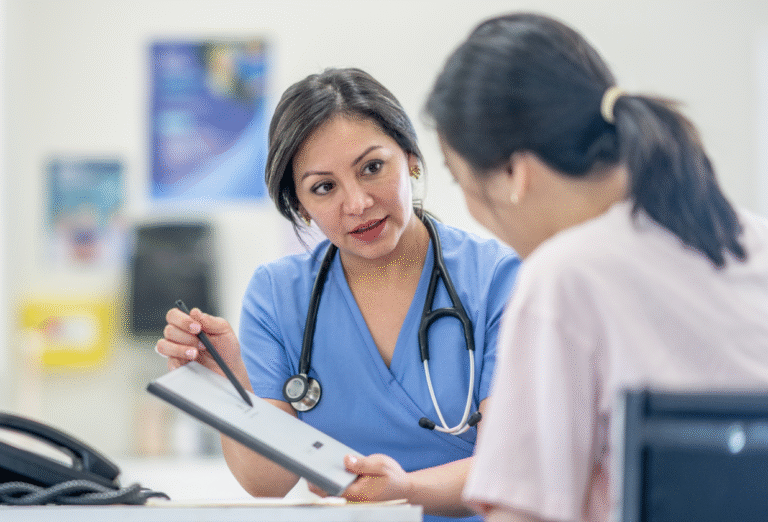A comprehensive guide to understanding menstrual health, its impact on overall well-being, and steps every woman can take to maintain a healthy cycle.
Menstrual health is a vital component of overall well-being for women, yet it is often overlooked or misunderstood. The menstrual cycle is more than a monthly event — it provides important insights into hormonal balance, reproductive health, and overall physical condition. Understanding your cycle allows you to recognize what is normal for your body and when medical advice may be necessary.
Normal menstrual care means paying attention to patterns, symptoms, and lifestyle factors. Even subtle changes in cycle length, flow, or associated discomfort can indicate underlying health issues that benefit from early intervention.
What a Typical Cycle Looks Like
A typical menstrual cycle ranges from 21 to 35 days, with bleeding lasting between 3–7 days. While occasional irregularities can be normal, persistent changes in cycle length, missed periods, or abnormal bleeding may signal conditions such as PCOS (Polycystic Ovary Syndrome), thyroid imbalances, or endometriosis.
Heavy bleeding, painful cramps, or spotting between cycles are common issues that should not be ignored. These symptoms can interfere with daily life, yet they are often dismissed as “normal.” Gynecologists can help identify underlying causes and recommend appropriate treatments, ranging from medications and hormonal therapies to lifestyle adjustments.
Lifestyle Factors and Menstrual Health
Maintaining good menstrual health involves attention to diet, exercise, and stress management. Adequate hydration, iron-rich foods, and a balanced diet can help reduce fatigue and alleviate common symptoms like cramps and bloating. Regular physical activity supports hormonal balance, improves circulation, and enhances mood during menstruation.
Stress has a profound effect on the menstrual cycle, potentially leading to irregular periods, missed cycles, or more severe symptoms. Practices such as yoga, meditation, and mindful breathing can help manage stress and promote hormonal harmony. Prioritizing sleep and avoiding excessive caffeine or alcohol also contribute to a healthier menstrual cycle.
Hygiene is another essential aspect of menstrual health. Using clean sanitary products, changing pads or tampons regularly, and maintaining proper vaginal hygiene help prevent infections and discomfort. In recent years, menstrual cups and organic pads have become popular as eco-friendly and safer alternatives that support both health and the environment.
When to Seek Medical Advice
Open communication with a gynecologist is key to maintaining menstrual health. Persistent irregularities, unusually heavy bleeding, severe cramps, or signs of infection should never be ignored. Early intervention ensures that conditions like PCOS, endometriosis, or thyroid disorders are diagnosed and managed before they lead to complications.
Additionally, gynecologists can provide personalized advice on fertility planning, contraceptive options, and hormonal therapies, helping women make informed choices about their reproductive health. Regular visits also allow tracking of any changes in menstrual patterns, ensuring timely action and continuous support throughout different life stages.
Empowering Women Through Menstrual Health Awareness
Prioritizing menstrual health is not just about managing monthly cycles — it’s about understanding your body, recognizing changes, and taking proactive steps toward wellness. Routine check-ups, lifestyle adjustments, and proper hygiene contribute to healthier cycles, reduced symptoms, and better overall health.
Education and open conversations about menstruation are equally important. Reducing stigma encourages young women to seek help when needed, promotes self-confidence, and builds a culture where menstrual health is treated as an essential aspect of overall well-being. Awareness empowers women to take charge of their health and ensures that problems are addressed early, supporting long-term reproductive and general wellness.











Comments
miaqueen
It’s a great pleasure reading your post!
cmsmasters
Thanks.